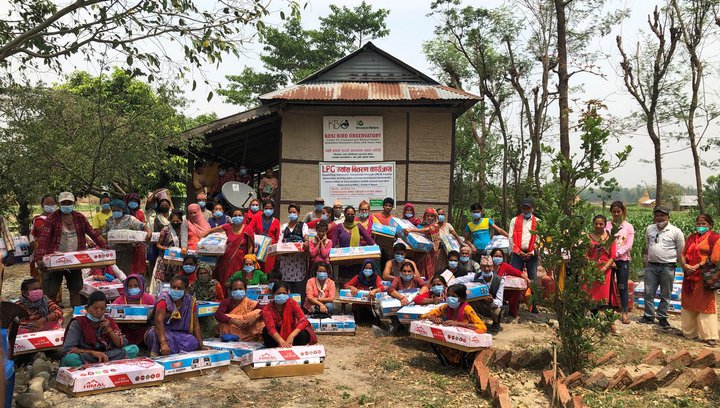Supporting Livelihood of Vulnerable Households Through LPG and Leaf Plate Schemes at Koshi
In the rural parts of Nepal, more than 64% of households use firewood as cooking energy with the open-fire method, which may cause serious health risk affecting mostly women and children. According to WHO, over 7500 Nepalese women and children die annually due to illnesses related to indoor air pollution. Although, Liquefied Petroleum Gas (LPG) is the dream energy for rural women of Nepal, poor and marginalized households have limited access to have it. The use of firewood and biomass energy for cooking using the open fire method not only affects health but also cause deforestation, which has negative impacts on biodiversity. The use of alternative energy sources, such as LPG, probably offers the best option for now in the rural households of Nepal in terms of reducing indoor pollution, improving the health status as well as reducing pressure on the forest to protect wildlife habitat and overall biodiversity.

Himalayan Nature is implementing the project to support the livelihood of poor households who are solely dependent on firewood for cooking and not able to afford the improved cooking energy such as LPG or biogas. In the initial stage, we are supporting 80 – 100 households around Kosi Bird Observatory (KBO) at Barahakshetra municipality with the LPG scheme. These households need regular investments to refill the empty gas cylinder, which might be difficult for them because of their very low monthly income. Thus, to overcome this problem we are also supporting them through income generation activity. The households who are eligible to be a part of the LPG scheme will be engaged in income generation activity, this will provide them adequate income to refill LPG and supports other basic necessities to their family. Income generation activity consists of leaf plate production on mass volume and sales in the local market. Our strategy is to create a market demand for such eco-friendly products through education and awareness. Through this project, we will train communities for the production of leaf plates and install a production plant to them. The leaf plates not only providing income to poor livelihood but also replace the use of non-biodegradable plastic plates, thus supporting environmental conservation.
We are conducting this project in coordination with the Barahakshetra municipality and funded by Mary-Rose Cooney through Cooney Investment Account, Ireland.
